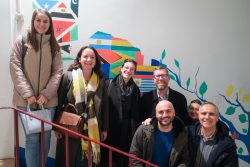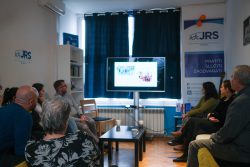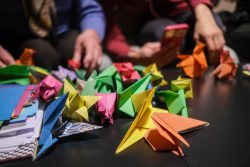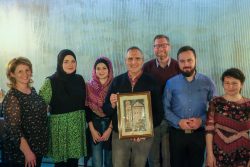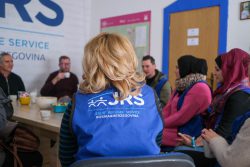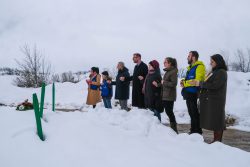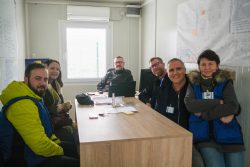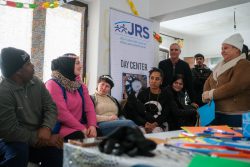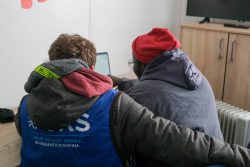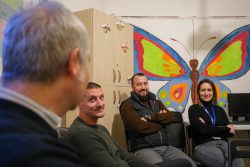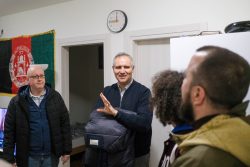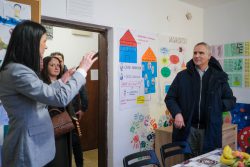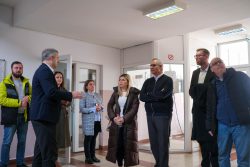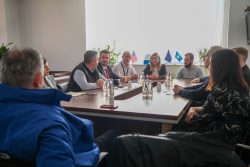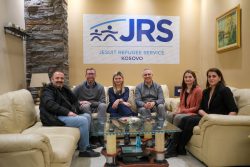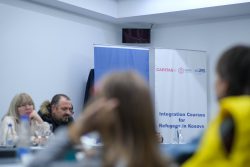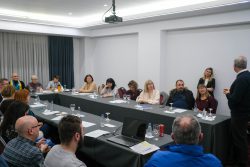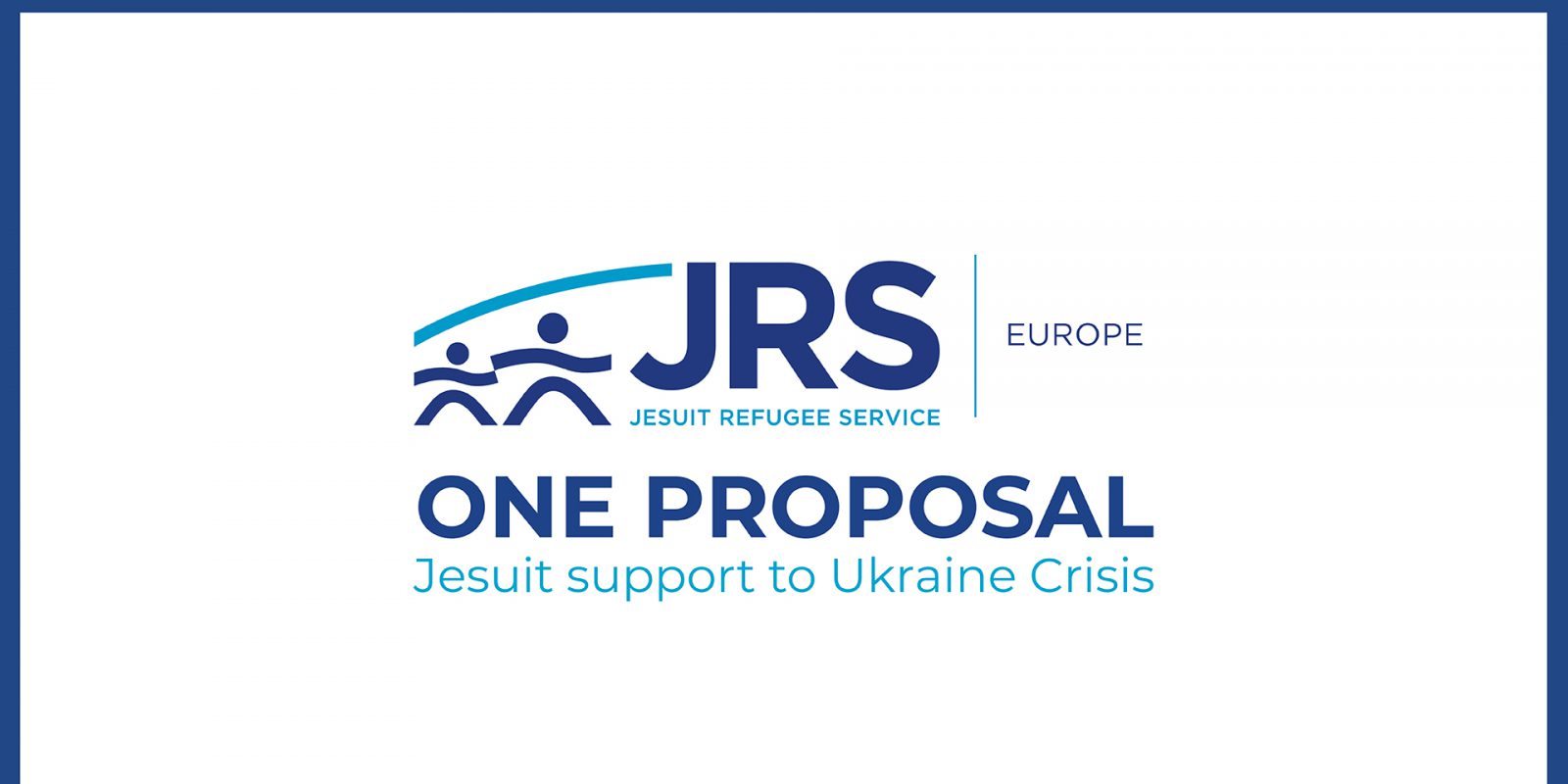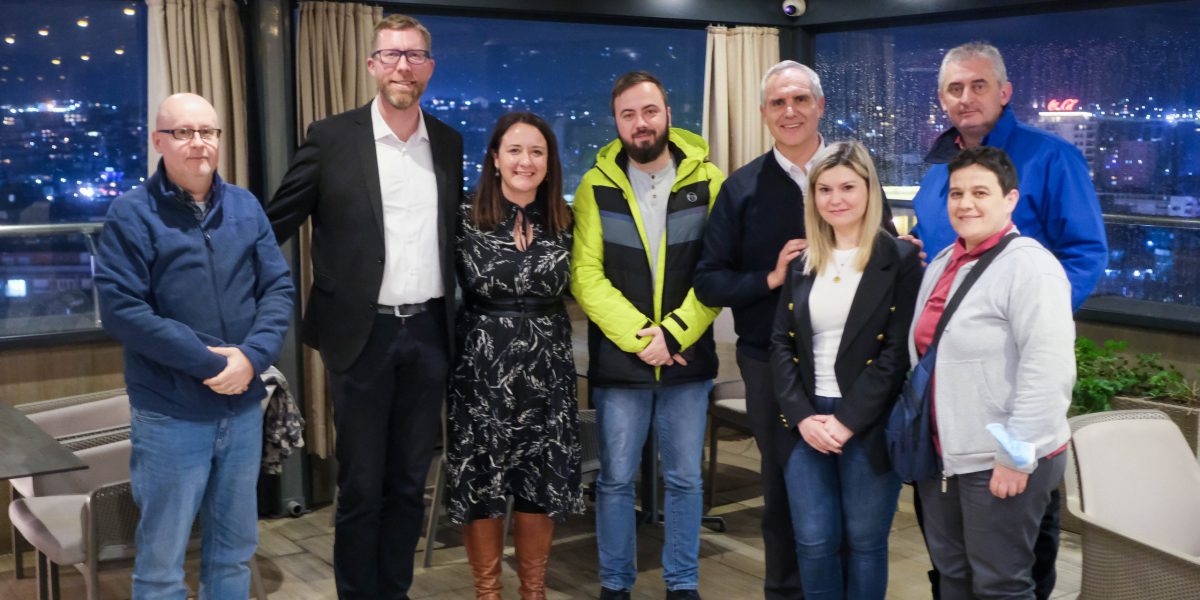
JRS Europe regional director, Alberto Ares, visited JRS Southeast Europe and met with the directors of each of the countries as well as the regional director of the region. The purpose of the visit was to see firsthand the work done by each of the national offices, but also to foster cooperation and exchange of best practices within the region.
After the trip, JRS Southeast Europe regional director, Stanko Perica highlighted: “I’m very glad that JRS Southeast Europe can use our experience from the war in the Balkans in the 90s and from hosting refugees from the Middle East, from Central Asia, also from Africa and Latin America to host and help Ukrainian refugees to integrate into our countries. As JRS we have become experts in integration”.
CROATIA
The trip started in Zagreb, where Alberto met with Stanko Perica and JRS Croatia country manager, Ana Marčinko. The JRS Croatia team introduced Alberto to the work carried out by them. The national office has a deep focus on integration through language courses, cultural workshops, and programmes with the youth to foment integration within schools. Alberto witness one of these programmes when he attended an origami course, which provides a weekly opportunity for some Ukrainians to gather and share in the community through a fun activity. The office also provides legal and psychosocial support and supports migrants in small communities.
BOSNIA
After Croatia, Alberto, Stanko, and Ana went to Bihać in Bosnia and Herzegovina to visit the JRS country office located in that city. The country manager Vedran Mihić alongside the JRS BIH team received the delegation and explained the services provided in the country which include humanitarian aid in the day centre in Bihać, a healthcare programme which provides hearing aid, dental services and medical aid, and accommodation, food items, vouchers and psychosocial support to Ukrainian refugees. After the presentation, the delegation visited the reception centre in the city where JRS BIH provides integration services such as computer training courses and a hairdressing station. Once finished, the delegation and the JRS BIH team shared lunch with refugees from Cuba, who are currently at the centre.
SERBIA
From Bihać, and with the company of Vedran, the delegation set course to Belgrade, where Miodrag Zivković, the country director, received them at the Pedro Arrupe House for unaccompanied children and introduced them to the JRS Serbia team. At this building, JRS provides socialization, education, and integration services and provides help to access external services provided by NGOs and governments. Afterward, Miodrag showed the apartments for transitional accommodation for young asylum seekers in Serbia who are working and/or studying. These apartments help them continue furthering their studies and professional careers.
KOSOVO
With the addition of Miodrag, the delegation went to Pristina, Kosovo, where the country manager, Orjana Shabani, welcomed them at the JRS Kosovo office. Together with the national team, they showcased the work carried out by the country office which focuses on the integration of foreigners in Kosovo, especially people who are granted international protection, by offering Albanian language courses and integration courses. While in Pristina, the delegation visited the Asylum Seeker centre outside of the city, where JRS provides Healthcare assistance, as well as the Ministry of Internal Affairs of Kosovo, where they met with Mr. Valon Krasniqi to discuss the cooperation so far and the possibility coordinated work in the future. The final stop in the visit was an Integration course for Ukrainian journalists, where they learn about the Albanian culture and language.
NORTH MACEDONIA
Milica Gjekikj, the Project & Finance Officer of JRS North Macedonia, and Dejan Strackovski, the country director of JRS North Macedonia, joined the delegation in Pristina. While there, they could share the developments in their national office and particularly their work in the detention centre on the border with Greece. At the centre, they are providing psychosocial and legal advice for migrants. This is key since most migrants consider Macedonia a transit country, however, they are frequently detained and kept in detention centres. Therefore, JRS works diligently in trying to help free them and assist them.
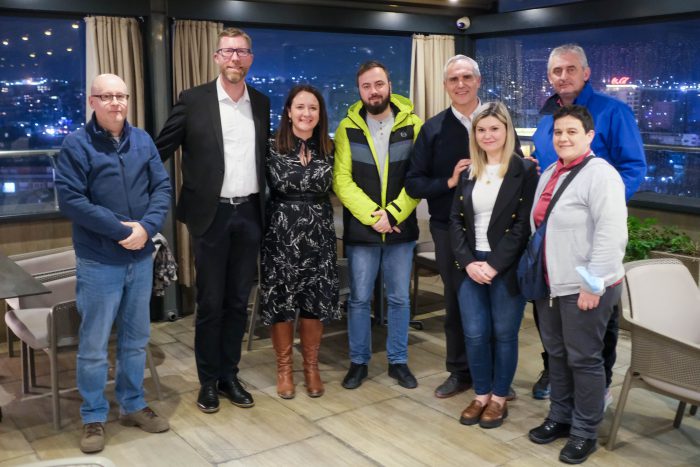
During the mission, the delegation also met the Jesuit Provincial for the Region, Fr Dalibor Renic, as well as Fr Sebastian, who will become the Provincial for the region in the summer. You can read more about it here.

